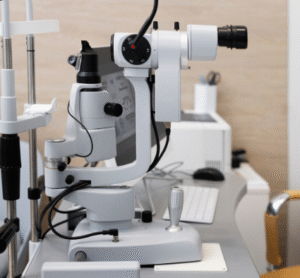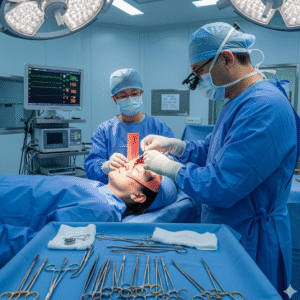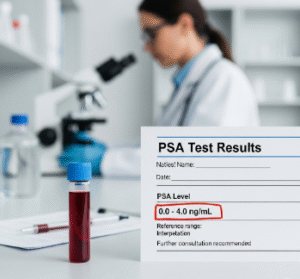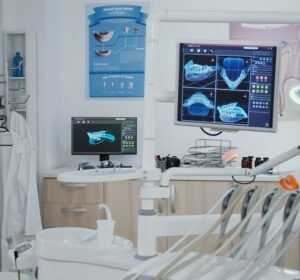Overview
Memory loss refers to a partial or complete inability to recall past experiences, events, or learned information. It can be temporary or progressive, depending on the underlying cause. While occasional forgetfulness is normal, persistent or worsening memory loss may indicate medical conditions such as dementia, Alzheimer’s disease, stroke, or brain injury.
In Korea, patients with memory problems have access to advanced neurology, psychiatry, and geriatric medicine, along with diagnostic tools such as MRI, PET scans, cognitive assessments, and genetic testing. Specialized memory clinics in Korean hospitals provide early diagnosis, treatment, and support for patients and families.
Key Facts
➤ Memory loss can be short-term, long-term, or progressive.
➤ Common in conditions like Alzheimer’s disease, dementia, stroke, or brain injury.
➤ Can also result from stress, depression, sleep disorders, or medication side effects.
➤ Early detection is critical for slowing progression in degenerative diseases.
➤ In Korea, memory clinics and neurology centers offer world-class care.
What is Memory Loss?
Memory loss (also called amnesia or forgetfulness) is a disruption in the brain’s ability to store, retain, or recall information. It may affect short-term memory (recent events), long-term memory (past experiences), or both.
Symptoms of Memory Loss
Memory loss may present as:
➔ Forgetting names, places, or recent events.
➔ Difficulty recalling words or conversations.
➔ Misplacing items frequently.
➔ Getting lost in familiar places.
➔ Difficulty performing daily tasks.
➔ Repeatedly asking the same questions.
➔ Confusion with time, dates, or surroundings.
Causes of Memory Loss
Neurological Causes
➔ Alzheimer’s disease.
➔ Other dementias (vascular, Lewy body, frontotemporal).
➔ Stroke or mini-strokes (TIAs).
➔ Brain tumors.
➔ Head injuries (trauma, concussion).
➔ Epilepsy or seizures.
Psychiatric & Functional Causes
➔ Stress, anxiety, or depression.
➔ Post-traumatic stress disorder (PTSD).
➔ Sleep disorders (insomnia, sleep apnea).
Other Causes
➔ Vitamin deficiencies (B1, B12).
➔ Thyroid disorders.
➔ Alcohol or substance abuse.
➔ Side effects of medications (sedatives, antidepressants, antihypertensives).
➔ Infections affecting the brain (encephalitis, meningitis).
Risk Factors
➔ Age (common in elderly).
➔ Family history of dementia or Alzheimer’s disease.
➔ Hypertension, diabetes, and cardiovascular disease.
➔ Smoking and alcohol use.
➔ Poor sleep and sedentary lifestyle.
Complications
If untreated, memory loss can lead to:
➔ Loss of independence.
➔ Increased risk of accidents.
➔ Emotional distress (anxiety, depression).
➔ Caregiver burden.
➔ Progression to severe dementia.
When to See a Doctor
Seek medical care if memory loss is:
➔ Sudden and severe.
➔ Accompanied by confusion, speech problems, or weakness (possible stroke).
➔ Progressively worsening.
➔ Interfering with daily life and safety.
Care and Treatment
Treatment depends on the cause.
Lifestyle & Supportive Care
➔ Memory training and cognitive exercises.
➔ Healthy diet rich in omega-3s, vitamins, and antioxidants.
➔ Regular physical activity and sleep improvement.
➔ Stress management and mental stimulation.
Medical Treatments
➔ Medications for Alzheimer’s disease (donepezil, rivastigmine, memantine).
➔ Antidepressants or anti-anxiety medications (if psychiatric cause).
➔ Vitamin and thyroid supplements (if deficiency or endocrine-related).
➔ Rehabilitation after stroke or head injury.
Advanced Therapies in Korea
➔ PET/MRI brain imaging for early dementia detection.
➔ Genetic testing for familial Alzheimer’s.
➔ Cognitive rehabilitation programs.
➔ Cutting-edge clinical trials and neurology research.
Treatment Options in Korea
Korea provides world-class neurology and geriatric care for patients with memory loss.
Diagnostic Services
➔ Cognitive assessments (MMSE, MoCA tests).
➔ Brain MRI, CT, and PET scans.
➔ Blood tests for vitamin, thyroid, and metabolic disorders.
➔ Genetic testing for Alzheimer’s and dementia risk.
Medical Treatments in Korea
➔ Latest Alzheimer’s medications and dementia therapies.
➔ Multidisciplinary care involving neurologists, psychiatrists, and geriatricians.
➔ Personalized rehabilitation and memory therapy programs.
Supportive Care
➔ Specialized memory clinics for elderly patients.
➔ Caregiver education and support systems.
➔ Lifestyle modification programs for brain health.













